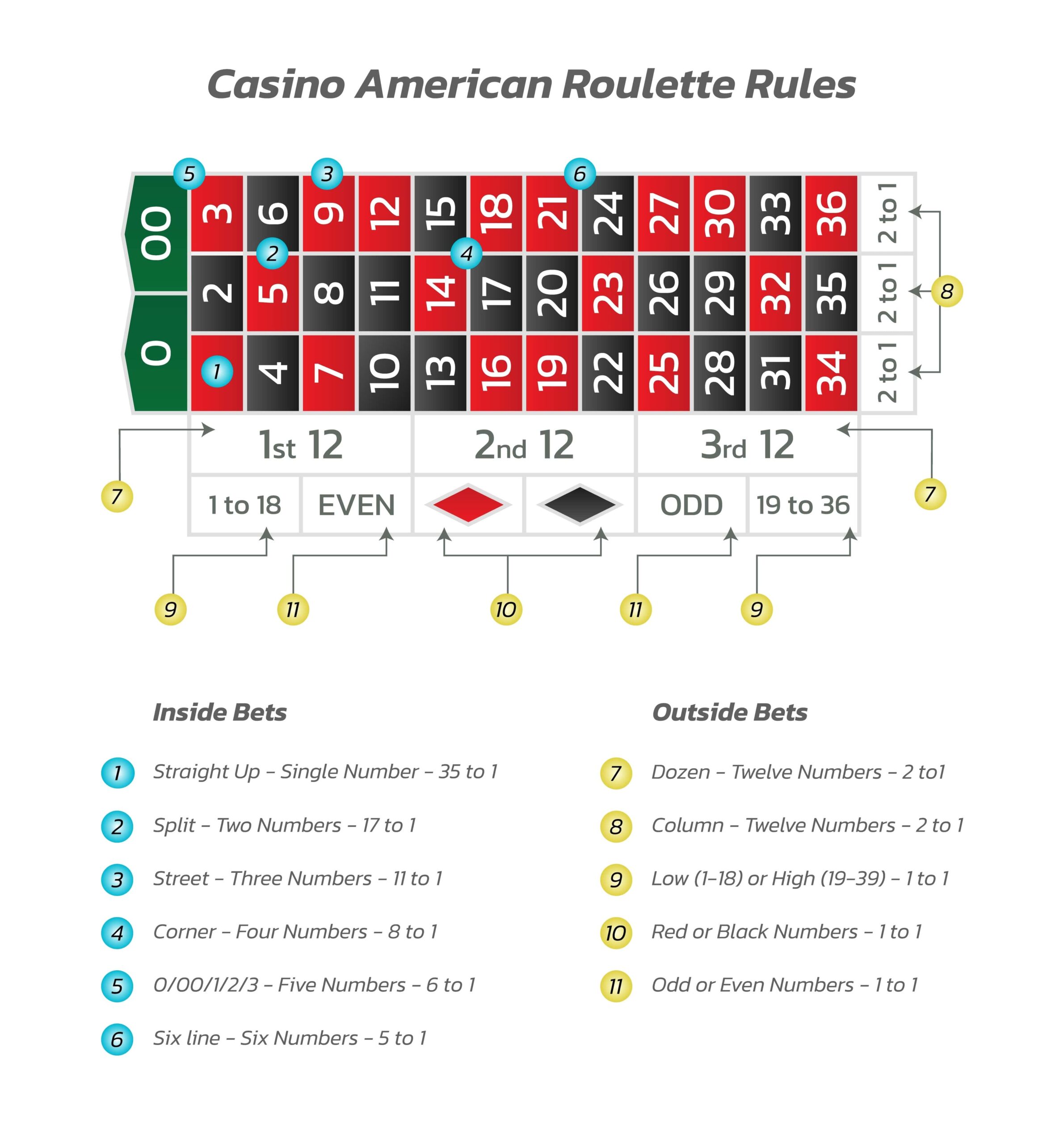Gambling can be fun and thrilling. For beginners, it can be confusing too.
Starting out in gambling requires some basic tips to enjoy the experience without losing too much. This guide provides useful advice tailored for those who are new to gambling. Knowing where to start and what to avoid can make your journey much smoother.
We’ll cover essential tips to help you make informed decisions and stay in control. Whether you’re at a casino or playing online, understanding the basics is key. Let’s dive into some practical tips that will set you on the right path.

Credit: www.psu.com
Choosing The Right Game
Selecting the right game is crucial for beginners in gambling. Start with games that have simple rules and low house edges. Always set a budget and stick to it.
Choosing the right game is crucial for beginners in gambling. It helps increase your chances of winning and ensures you have fun. Different games offer different odds and experiences. Understanding these differences can guide you to make better choices.Popular Casino Games
Many beginners gravitate towards slot machines. They are simple and require no skill. Just spin the reels and hope for a match. Blackjack is another favorite. It combines luck and skill. You need to get a hand as close to 21 as possible without going over. Roulette is exciting and easy to play. Bet on numbers, colors, or sections of the wheel. The ball determines your fate. Poker is for those who enjoy strategy. It involves skill, bluffing, and reading opponents. Winning in poker feels rewarding.Skill Vs. Luck
Understanding the balance between skill and luck in each game is vital. Games like slots are purely based on luck. No strategy can influence the outcome. This makes them unpredictable but thrilling. Blackjack, on the other hand, involves both skill and luck. Knowing when to hit, stand, or double down can make a difference. Poker requires the most skill. Success depends on your ability to read other players. Bluffing and strategy are key. Roulette and craps are mostly luck-based. Your bets and the roll of the dice or spin of the wheel decide the results. Choose a game that matches your comfort level with skill and luck. This helps you enjoy and potentially win more.Setting A Budget
Setting a budget is crucial for anyone starting their gambling journey. It helps control spending and keeps the experience enjoyable. A budget can prevent financial stress and make gambling fun. Read on for tips on setting and sticking to a budget.
Importance Of Bankroll Management
Bankroll management means controlling the money set aside for gambling. It’s essential to avoid spending more than you can afford. Set a specific amount and stick to it. This prevents overspending and keeps gambling enjoyable.
Divide your bankroll into smaller amounts for each session. This way, you won’t lose all your money in one go. Smaller amounts help you play longer and reduce risk. Always monitor your spending to stay within your budget.
Avoiding Chasing Losses
Chasing losses means trying to win back money you’ve lost. This often leads to more losses and frustration. Accept that losing is part of gambling. Stick to your budget and move on.
Set limits on how much you can lose in a session. Once you reach that limit, stop playing. This helps you maintain control and avoid further losses. Remember, gambling should be fun, not stressful.
Understanding Odds
Understanding odds is crucial for anyone new to gambling. It helps you make informed decisions and increases your chances of winning. Odds tell you how likely an event is to happen. They also show how much you can win if you bet correctly. Let’s break down the basics of odds, starting with the house edge and calculating payouts.
House Edge Explained
The house edge is the casino’s advantage over players. It is a percentage that shows how much the casino expects to win over time. For example, a house edge of 5% means the casino wins 5 cents for every dollar you bet. Understanding the house edge helps you choose games with better odds. Games with a lower house edge give you a higher chance of winning.
Calculating Payouts
Calculating payouts is simple once you understand the odds. Payouts tell you how much you will win if your bet is successful. For example, if the odds are 2 to 1, you win $2 for every $1 you bet. Different games have different payout structures. Always check the payout table before placing a bet. This helps you understand potential winnings and make better betting choices.
Effective Betting Strategies
Effective betting strategies can improve your gambling experience. Beginners often make the mistake of betting randomly. Learning structured strategies can help you make informed decisions. Below are two popular betting systems you can try: the Martingale System and the Paroli System.
Martingale System
The Martingale System is a well-known betting strategy. It involves doubling your bet after each loss. The idea is to recover all previous losses with one win. Start with a small bet. If you lose, double your next bet. Continue doubling until you win. This system requires a significant bankroll. It can be risky but offers the chance to recover losses quickly.
Paroli System
The Paroli System is a positive progression strategy. Instead of doubling after a loss, you double after a win. Start with a small bet. If you win, double your next bet. If you lose, go back to your initial bet amount. The goal is to take advantage of winning streaks. This system is less risky than the Martingale. It helps you capitalize on good luck while minimizing losses.
Managing Emotions
Starting out in gambling can be thrilling. The rush, the excitement, the highs and lows – it’s all part of the experience. But it’s also easy to let emotions take over. And that can lead to poor decisions. Let’s talk about how to keep those emotions in check.
Staying Calm Under Pressure
Imagine you’re at the table. You just lost a big hand. Your heart races. Your palms sweat. It’s easy to feel overwhelmed. Here are some tips to stay cool:
- Take Deep Breaths: Breathing deeply can calm your mind. It’s simple but effective.
- Step Away: Sometimes, you need a break. Walk around. Grab a drink. Clear your head.
- Set Limits: Decide beforehand how much you’re willing to lose. Stick to it.
- Focus on the Game: Keep your mind on the game, not the losses. Think of it as a strategy exercise.
These steps can help you stay calm. They can prevent you from making rash decisions. And they can make your gambling experience more enjoyable.
Recognizing Signs Of Problem Gambling
It’s important to know when gambling is becoming a problem. Here are some signs to watch out for:
- Chasing Losses: Are you trying to win back money you’ve lost? This can lead to bigger losses.
- Spending More Time and Money: Are you gambling more than you planned? This could be a warning sign.
- Neglecting Responsibilities: Is gambling getting in the way of your work or family? It’s time to reassess.
- Feeling Guilty or Anxious: Are you feeling bad about your gambling? Listen to those feelings.
If you notice these signs, it might be time to seek help. Talk to a friend or a professional. Remember, it’s okay to ask for help.
Managing emotions in gambling is crucial. It can make the difference between a fun pastime and a harmful habit. Stay calm, know the signs, and enjoy responsibly.

Credit: www.youtube.com
Learning The Rules
Learning the rules is key for any beginner entering the world of gambling. Understanding game rules can increase your chances of winning. It also makes the game more enjoyable. Learning the rules helps you avoid costly mistakes. This guide will cover basic rules and advanced strategies.
Basic Rules Of Popular Games
Every game has its own set of rules. Knowing these rules is crucial. For example, in Blackjack, the goal is to beat the dealer’s hand. You must get as close to 21 as possible without going over. In Poker, your aim is to have the best hand or to bluff your way to victory. Slots are easier; you spin the reels and hope for matching symbols. Each game has unique rules that you must learn before you start playing.
Advanced Strategies
Once you know the basic rules, you can move on to advanced strategies. In Blackjack, card counting can give you an edge. This involves tracking the high and low cards. In Poker, understanding your opponents is vital. Pay attention to their betting patterns. For slots, look for machines with higher payout percentages. Remember, strategies can improve your chances but do not guarantee a win.
Taking Advantage Of Bonuses
Taking advantage of bonuses can boost your gambling experience. Bonuses provide extra value and extend your playtime. New and loyal players can benefit from different types of bonuses. This guide will explore two key types of bonuses: welcome bonuses and loyalty programs.
Welcome Bonuses
Welcome bonuses are designed for new players. They often include match bonuses or free spins. Match bonuses multiply your first deposit by a certain percentage. For example, a 100% match bonus doubles your deposit amount. Free spins let you play slot games without spending your money. Always read the terms before claiming a welcome bonus.
Loyalty Programs
Loyalty programs reward regular players. These programs offer points for every bet placed. Points can be exchanged for cash, free spins, or other rewards. Higher loyalty levels often provide better rewards and perks. Check the casino’s loyalty program details to maximize your benefits.

Credit: napoleons-casinos.co.uk
Knowing When To Quit
Knowing when to quit is a crucial skill in gambling. It ensures you don’t lose more money than you can afford. It also helps you keep your emotions in check. Many beginners struggle with this. Let’s explore some tips to help you master this important aspect.
Setting Win/loss Limits
Setting win/loss limits is essential. Decide how much you’re willing to lose before you start. Stick to this limit no matter what. This prevents you from chasing losses. Also, set a win limit. This is the amount you’re happy to win and then walk away. Reaching this limit means it’s time to stop. Don’t get greedy. Enjoy your winnings and leave the table. This discipline keeps you in control.
Avoiding The Gambler’s Fallacy
Many gamblers fall for the gambler’s fallacy. They believe that past outcomes affect future ones. For example, after losing several times, they think a win is due. This is false. Each game is independent. The odds don’t change based on previous results. Believing in the gambler’s fallacy can lead to bigger losses. Stay aware of this pitfall. Make decisions based on logic, not superstition.
Frequently Asked Questions
How To Gamble For Beginners?
Start by setting a budget and stick to it. Choose simple games like slots or roulette. Learn the rules before playing. Practice with free versions online. Gamble responsibly and know when to stop.
How Do I Become Good At Gambling?
To become good at gambling, set a budget, learn game strategies, manage your emotions, and practice regularly. Always gamble responsibly.
Is $100 Enough For A Casino?
$100 can be enough for a casino visit. It depends on your game choice and spending habits. Play responsibly.
What Is The First Rule Of Gambling?
The first rule of gambling is to only bet what you can afford to lose. Always set a budget.
Conclusion
Starting your gambling journey can be exciting and rewarding. Keep these tips in mind. Set a budget and stick to it. Learn the rules of each game. Practice with free versions online. Stay calm and don’t chase losses. Remember, gambling is for fun.
Winning is a bonus, not the goal. Be responsible and enjoy the experience. With these tips, you can gamble wisely. Happy playing!





